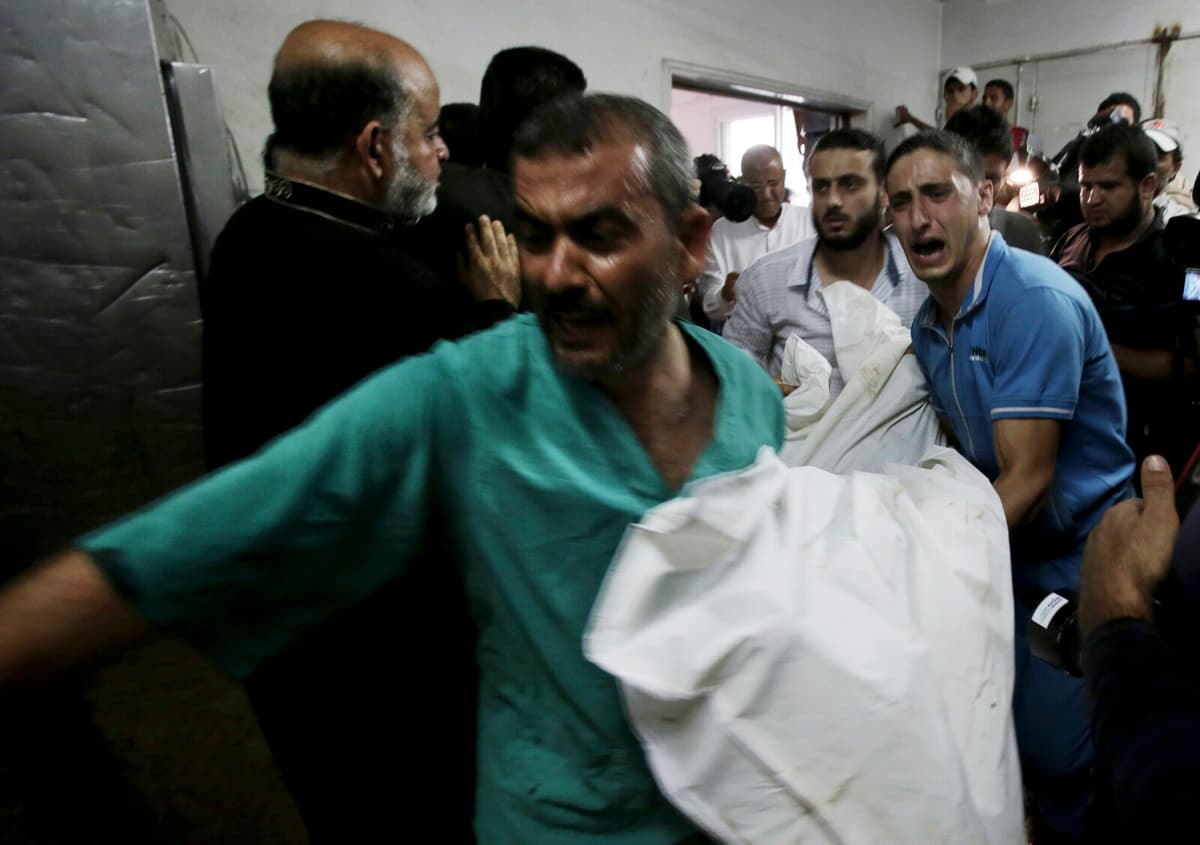IAGS is an international organization that gathers around 600 members who research genocide or are otherwise engaged in the subject.
The organization states that the Israeli government "has committed systematic and widespread crimes against humanity, war crimes and genocide, including indiscriminate and intentional attacks on civilians and civilian infrastructure". This is after a vote where 28 percent of the members participated, of which 86 percent voted for the resolution.
The organization writes that Israel's policy and actions in Gaza meet the legal definition of genocide in the UN Genocide Convention.
In addition, Israel is also considered to commit war crimes and crimes against humanity, according to international humanitarian law, and the Rome Statute, which is the basis for the International Criminal Court (ICC).
Dehumanizing statements
IAGS refers, among other things, to the fact that Israel has killed or injured more than 50,000 children, and that the extermination of a larger group of children, according to previous statements from the International Court (ICJ), is considered genocide.
Comments from parts of the Israeli government and military leaders that dehumanize Palestinians in Gaza are also mentioned.
Torture, arbitrary detention, sexual violence, attacks on medical personnel and journalists, as well as deliberate deprivation of food, medicine, and electricity necessary for the population's survival, are also taken into account by IAGS.
Affects the entire population of Gaza
Hamas' terrorist acts on October 7, 2023, which triggered the war, are described in the resolution as atrocious, but according to the research group, Israel's counterattack has not only been directed against Hamas, but against the entire population of Gaza.
Israel has been accused of genocide by other prominent organizations, such as Amnesty International and Human Rights Watch, writes IAGS.
The international association of genocide researchers urges Israel to cease all acts of genocide and war crimes, and also calls on all states to uphold their commitments under international law.
Corrected: In an earlier version of the text, there was a misleading description of what proportion of the organization's members voted for. Also clarifies that the organization is open to others besides researchers.
Sophie Tanha/TT
Facts: How genocide is defined
TT
Genocide is defined in international law as acts intended to destroy, in whole or in part, a national, ethnic, racial, or religious group as such.
In addition to killing or seriously injuring members of the group, the acts can also consist of:
+ Inflicting on the group conditions of life calculated to bring about its physical destruction in whole or in part
+ Implementing measures intended to prevent births within the group
+ Forcibly transferring children in the group to another group.
The intention is crucial for the above acts to be defined as genocide.
The crime classification was introduced after the Nazis' attempts to exterminate, among others, Jews and Roma during World War II.
Source: UN
In the International Court (ICJ) in The Hague, a trial has been ongoing since December 2023, in which South Africa accuses Israel of genocide.
At the end of May last year, the ICJ ordered Israel to immediately stop military actions against Rafah in southern Gaza and to keep border crossings open for aid shipments. Israel has not followed the court's ruling.
According to the UN Convention on the Prevention and Punishment of the Crime of Genocide from 1948, countries are obliged to act even when there is a risk of genocide, to prevent such acts from occurring.
The Convention, which Sweden has signed, does not require a court to have established that genocide has occurred for the outside world to act.
Source: ICJ, UN






